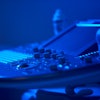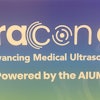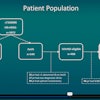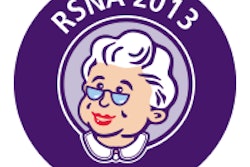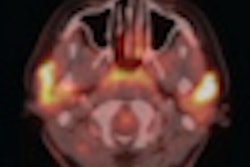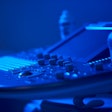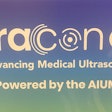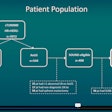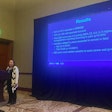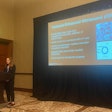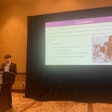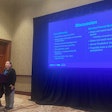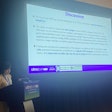Stress echocardiography can help identify the risk of heart attack or death in patients with HIV, allowing for risk stratification of individuals into low- and high-risk groups, according to research published online in Circulation: Cardiovascular Imaging.
In a study of more than 300 HIV-positive patients, patients with an abnormal stress echo study had a 10 times greater risk of heart attack and death than the average population. The group also had more than three times the risk of heart attack and death when compared to HIV-negative patients with abnormal stress echo exams. Meanwhile, patients with normal exams had event rates comparable to the general population: less than 1% per year.
"Patients with an abnormal [stress echocardiography exam] have poor outcomes and may benefit from aggressive interventions," wrote senior author Dr. Farooq Chaudhry, of Columbia University College of Physicians and Surgeons, and colleagues. "Furthermore, an abnormal [stress echocardiography exam] provides incremental prognostic value over traditional clinical, stress electrocardiographic, and resting echocardiographic variables."
Patients with HIV face an increased risk of accelerated coronary artery disease and cardiovascular events. To assess the prognostic value of stress echocardiography, the researchers evaluated 311 HIV patients; 173 (56) received dobutamine stress echocardiography and 138 (44%) had exercise stress echocardiography (Circulation: Cardiovascular Imaging, July 12, 2011).
The study population had an average age of 52 and an average left ventricular ejection fraction of 54. Of the 311 patients, 230 (74%) were male.
Seventy-nine (26%) had abnormal stress echocardiography exams, while the remaining 232 had normal findings. In cases with abnormal results, 62 had ischemia.
Follow-up over an average of 2.9 years found 17 confirmed myocardial infarctions and 14 cardiac deaths in the group with abnormal exams. The average risk of heart attack and death was 12% each year. Meanwhile, only four events were found in the group with normal stress echocardiography studies.
Cumulative survival for HIV patients
|
In other findings, the researchers determined that independent predictors of cardiac events included abnormal stress echocardiography exams (hazard ratio = 28.2, 95% confidence interval: 6.2-128, p < 0.0001) and the presence of any ischemia on stress echocardiography (hazard ratio = 3.4, 95% confidence interval: 1.3-8.6, p = 0.009).
Using a forward conditional Cox proportional hazards regression model, the study team calculated that stress echocardiography yielded incremental prognostic value over clinical, stress electrocardiographic, and resting echocardiographic variables (global Chi-square increased from 17.8 to 24.5 to 65 to 109, p < 0.05 across all groups).
